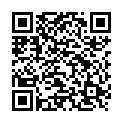|
|
|
| Module code: MST.MA3 |
|
|
4V+1U (5 hours per week, accumulated) |
|
6 |
| Semester: 3 |
| Duration: 2 semester |
| Mandatory course: yes |
Language of instruction:
German |
Assessment:
Test + term paper
[updated 10.05.2021]
|
MST.MA3 (P231-0055) Mechatronics and Sensor Technology, Bachelor, ASPO 01.10.2012
, semester 3, mandatory course
MST.MA3 (P231-0055) Mechatronics and Sensor Technology, Bachelor, ASPO 01.10.2011
, semester 3, mandatory course
|
75 class hours (= 56.25 clock hours) over a 15-week period.
The total student study time is 180 hours (equivalent to 6 ECTS credits).
There are therefore 123.75 hours available for class preparation and follow-up work and exam preparation.
|
Recommended prerequisites (modules):
MST.NSW Numerical Software
[updated 01.10.2012]
|
Recommended as prerequisite for:
MST.CVI Computer Vision
MST.TMM Mechanical Engineering and Machine Dynamics
[updated 01.10.2012]
|
Module coordinator:
N.N. |
Lecturer: N.N.
[updated 01.10.2012]
|
Learning outcomes:
The objective of this module is to teach the applied mathematical methods required for engineering disciplines such as control engineering and physics.
In addition, it is designed to teach applied methods of higher mathematics in a problem-oriented manner (in particular numerics and statistics) using practical examples.
After successfully completing this module, students will be able to solve minor problems based on given measured data using MATLAB and SIMULINK, and present their solution in writing.
Part I
[updated 10.05.2021]
|
Module content:
1 - Ordinary differential equations
Separable DG
Linear differential equation with constant coefficients of the 1st order
Linear differential equation with constant coefficients of the 2nd order
Applications in technology
2 - The Fourier transform
Fourier series for periodic functions
Fourier series for non-periodic functions
Applications
3 - The Laplace transform
Definition
Algorithms
Inverse transformation methods (convolution, partial fraction decomposition)
Applications
4 Functions with multiple variables
Partial derivatives, tangent plane
3. Coordinate transformations,
Multiple integrals and integral transform
5 Introduction to vector analysis
Part II
1. Introduction to Matlab
1.1 Calculating with vectors and matrices, creating graphics
2. Interpolations (Newton polynomials, Spline functions)
2.1 Mini-project
3. Least squares fitting
3.1 Linear balance functions
3.2 Non-linear balanced functions
3.3 Mini-project
4. Simple statistical measures for one, two, and more than two characteristics
4.1 Mini-project
5. Numerical differentiation and integration - Introduction
5.1 Mini-project
6. Introduction to SIMULINK
6.1 Solving initial value problems of ordinary differential equations with SIMULINK
6.2 Mini-project
[updated 10.05.2021]
|
Teaching methods/Media:
The numerics part II will take place in the PC lab AMSEL (Angewandte Mathematik, Statistik, eLearning (Room 5306).
All practical exercises for the lecture, as well as solving exercises, homework and case studies will be done with the e-learning system MathCoach (AMSEL lab: PC lab: "Angewandte Mathematik, Statistik und eLearning").
In addition, a performance-relevant midterm exam will be written as an online exam using the MathCoach elearning system.
[updated 10.05.2021]
|
Recommended or required reading:
Part I
0. B.Grabowski:"Mathematik III für Ingenieure", e-book mit MathCoach, 2011
1. L. Papula : "Mathematik für Ingenieure", Band 1-3 und Formelsammlungen, Vieweg, 2000
2. Engeln-Müllges, Schäfer, Trippler: "Kompaktkurs Ingenieurmathematik". Fachbuchverlag Leipzig im Carl Hanser Verlag: München/Wien, 1999.
3. Brauch/Dreyer/Haacke, Mathematik für Ingenieure, Teubner, 2003
Part II
0. B.Grabowski: "E-Learning: Numerik mit MathCoach", e-book, 2011
1. Preuss/Wenisch, Numerische Mathematik, Fachbuchverlag, 2001
2. Faires/Burden, Numerische methoden, Spektrum Akademischer Verlag, 2000
3. Gramlich/Werner, Numerische Mathematik mit MATLAB, dpunktverlag, 2000
4. Beucher, MATLAB und SIMULINK lernen, Addison-Wesley, 2000
5. Bartsch H.-J., Tachenbuch Mathematischer Formeln, Fachbuchverlag Leipzig, 2003
Materials
1. www.htw-saarland.de/fb/gis/people/bgrabowski/vorles/mathe.htm
(only available within the htw)
2. www.htw-saarland.de/fb/gis/mathematik/
Script I and formula collection 1 for descriptive statistics
[updated 10.05.2021]
|


